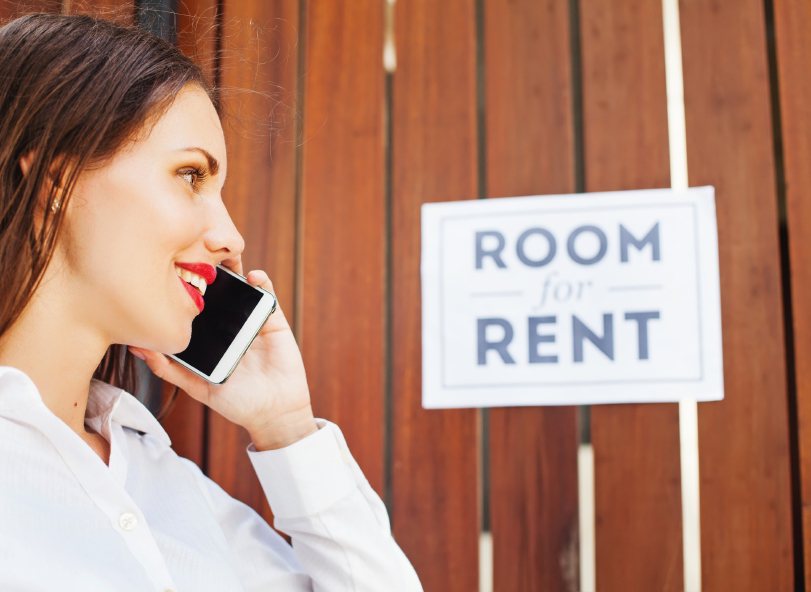Home » Uncategorised »
Make More Money from Taking in a Lodger from April
This article is an external press release originally published on the Landlord News website, which has now been migrated to the Just Landlords blog.

When we think of renting out property, most of us will think of buy-to-let landlords. However, homeowners can make more money from taking in a lodger from 6th April, when tax rules change.
At present, anyone with a lodger can earn a tax-free income of up to £4,250 per year. Any amount above this will require you to pay tax.
But from next month, the tax-free allowance soars to £7,500 a year – enabling most lodger landlords to avoid paying tax on their income.
In 2015, the average lodger landlord in London earned £708 per month, £405 in Leeds and £432 in Glasgow, according to website SpareRoom.co.uk.
The tax-free boost could even help solve the housing crisis, says the Director of SpareRoom.co.uk, Matt Hutchinson.
“The pressure on buy-to-let landlords from the abolition of tax relief on mortgage interest could force rents up,” he believes. “Making better use of the housing stock we already have is absolutely essential.”
He adds: “There are 19m empty bedrooms in owner-occupied properties in England alone, so encouraging more people to take in lodgers would make a real difference.”1
To take advantage of the tax-free allowance, your property must be your main home and you must live there with the lodger for at least part of the time.
Paula Gibbons is a 50-year-old health and safety officer from Manchester who hopes to make use of the larger allowance.
She started renting out rooms in her house more than ten years ago. Initially, she took in lodgers for security, but has found that it works well for her socially and financially too.
“When I’m away, it’s good to know someone is in the house,” she explains.

Make More Money from Taking in a Lodger from April
“I’ve had about 20 lodgers over the years. In 2010, my job disappeared – at the time I only rented one room out. I moved to another job, taking a salary cut of 28%. I then decided to rent both spare rooms.”
Paula has a three-bedroom house, letting the smaller room for £240 per month, including utility bills and Council Tax, and £300 for the larger room. Currently, she has a male lodger in his 20s and a female in her 30s.
However, she has admitted the downsides: “I’ve had a few problems. One girl was a disaster – everything she touched got destroyed.
“I also had a couple once, but four people was too many for a house with one bathroom.”
Paula takes one month’s deposit to cover any damage.
She has always managed to stay under the £4,250 tax-free allowance.
“There have been gaps between lodgers each year,” she says. “But now the allowance is rising, I will offer longer term contracts.”
Anyone taking in a lodger should create a formal agreement. You can get a lodger agreement from SpareRoom.co.uk for just £4.99.
Paula uses a periodic tenancy, which runs from month-to-month.
“This way I don’t have to offer a specific term – I just get them to sign and date a rent book,”1 she says.
If you are a homeowner considering taking in a lodger, you must check your mortgage terms.
David Hollingworth, of broker London & Country, states: “Although standard mortgage deals will not allow formal letting of a property, most lenders are likely to take a more relaxed view on lodgers when the homeowner remains resident.”
Your lodger must also sign a consent form to confirm that they are aware that the home is mortgaged.
“That just ensures the lodger is aware there is a mortgage in place and of the lender’s rights,”1 says Hollingworth.
Additionally, your home insurance provider will also need to know if you take in a lodger. Although it is unlikely to affect your premium, if you do make a claim, you risk it being rejected if you have not notified the insurer about regular guests.
A claims expert at Halifax Insurance, Martyn Foulds, adds: “Also, remind your lodger that their belongings aren’t covered under your policy. Get your insurer’s advice in order to avoid being left unprotected.”1
Remember that taking in a lodger could affect your Council Tax bill if you receive the single person discount. However, you will still get the discount if the lodger is a student or a Monday-Friday lodger, who pays Council Tax on another property.
If you are unsure about tax, speak to an accountant.
Jo Bateson, a partner at KPMG, says: “The allowance is different to someone running a B&B, which is business income rather than a rental yield – this would fall outside of this allowance. The facts of each case would determine what a homeowner is deemed to be doing. The length of stay and frequency of different tenants are likely to be key factors.”1
If you are thinking of taking in a lodger and are wondering where to advertise, there are many sites, including SpareRoom and EasyRoommate.
1 http://www.theguardian.com/money/2016/mar/14/lodger-allowance-rent-spare-room-tax-free-sum




